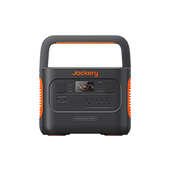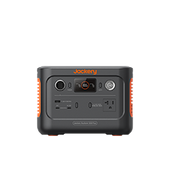The 5 Most Common Uses of Solar Energy
The use of solar energy has grown at a 33 percent yearly growth on average over the last ten years. There are more than 130.9 gigawatts (GW) of solar utility-scale countrywide, sufficient to generate electricity for 23 million homes because of robust national policies like the solar Investment Tax Credit, steadily declining expenses, and rising demand for sustainable electricity across the private and public sectors.
Falling prices are driving solar growth. Over the last decade, the cost of installing solar has dropped by more than a 60percent, allowing the sector to penetrate new markets and distribute many systems across the nation. A typical residential system has fallen from a pre-incentive cost of $40,000 in 2010 to around $20,000. In contrast, utility-scale prices have recently ranged from $16/MWh to $35/MWh, making it financially viable with all other electricity sources.
Who Uses Solar Energy?

- Homeowners
Whether you own or rent, solar can power your home's energy requirements, such as lighting, heating, computers, and appliances. Solar has numerous advantages for homeowners, including; Cutting costs by reducing or eliminating electricity bills, providing reliability during fluctuating electric rates, reducing greenhouse gas emissions to help make your residents cleaner and safer, and obtaining national, state, and municipal tax breaks for qualifying solar projects. Solar generators also serve as a reliable backup during home power outages.
- Off-grid living enthusiasts
An off-grid solar panel uses solar panels, battery storage, and other devices to power a site that is not connected to the power grid. It has many applications, including powering campsites, RVs, boats, remote cabins, and family homes. Off-grid living enthusiasts should make use of the benefits it provides.
- RVers and campers
Many RVers and campers use gas generators, while a few use natural gas generators. Nevertheless, there are several advantages to switching to solar energy instead. You may want to supplement your generator with solar panels for many reasons. But first, consider the seven advantages of RV solar energy power: cost savings, safety, improved security, reduced ecological footprint, and weight and space-saving.
- Backup power users
Battery backup solar PV systems operate similarly to standard generators, with the additional benefit of powering your home with clean, sustainable energy during the day.
Other benefits of the solar-powered Battery backup system include:
- The battery system qualifies for the federal tax credit. Lithium-ion batteries are safe, dependable, and necessitate no repairs;
- Before, during, and after power failures, the solar inverter charges the battery with clean, free solar power, and an insightful app that is compatible with any personal electrical gadget or home computer makes it possible to monitor your living area's power consumption and solar generation using an internet-intelligent energy management system.
Uses of Solar Energy
Solar electricity, solar water heating, solar heating, solar ventilation, solar lighting, portable solar (for personal electronic devices), and solar transportation are all applications of solar energy (for electric vehicles). Also, solar photovoltaics (PV) for electricity, solar heating and cooling (SHC), and concentrated solar power are the primary applications of solar energy (CSP).
SHC systems mainly heat or cool water and spaces (like your home). CSP systems, which primarily target utilities, use reflective gadgets to concentrate the sun's energy.
Disclaimer:
The runtime mentioned for appliances powered by Jackery is for reference only. Actual runtime may vary under different conditions. Please refer to real-world performance for accurate results.














































































































Leave a comment